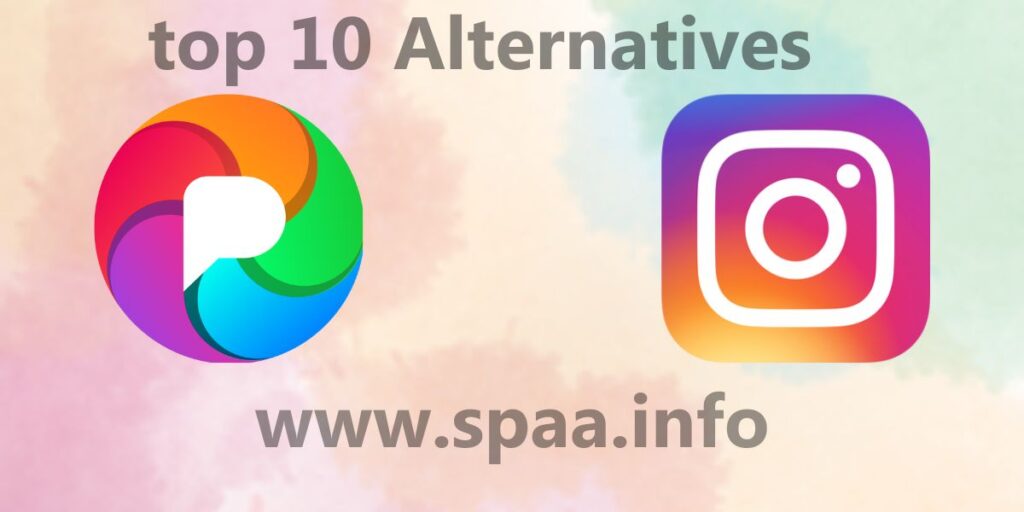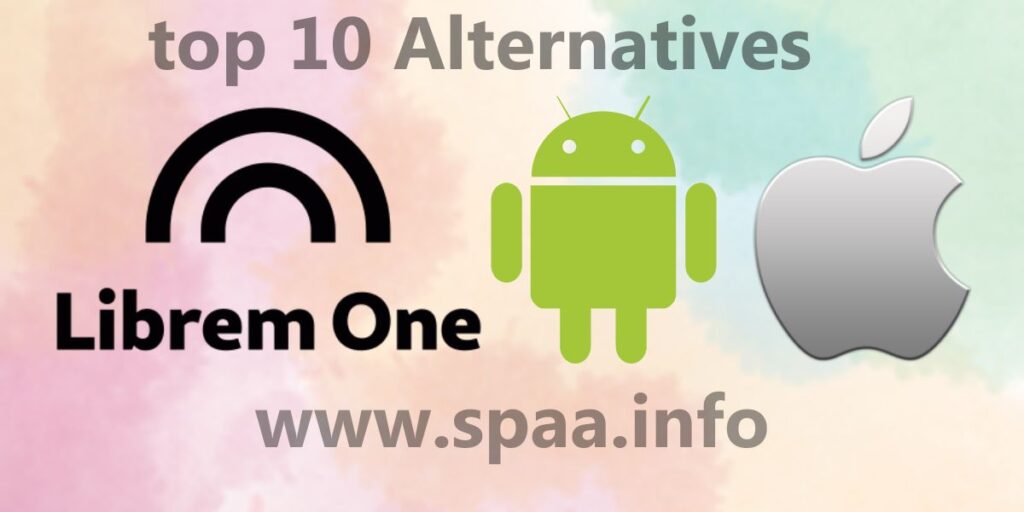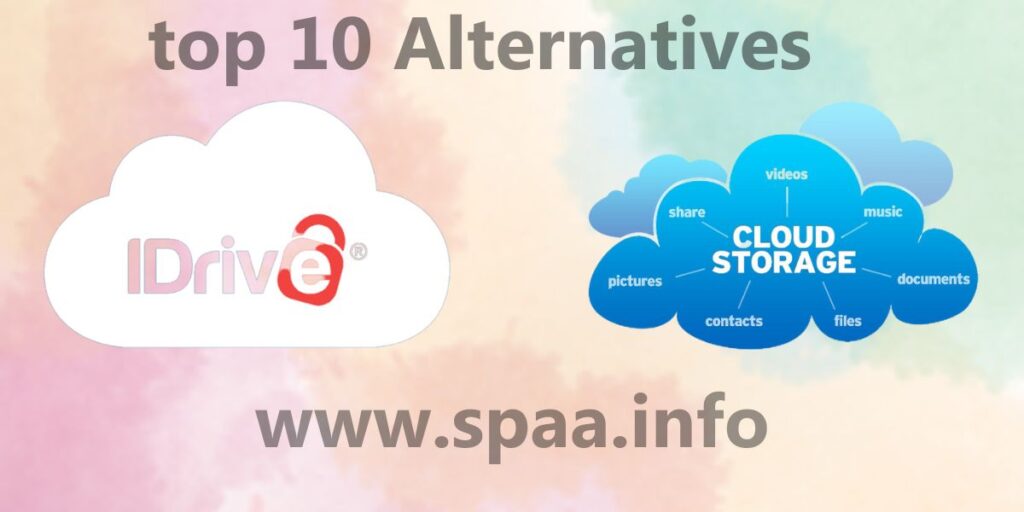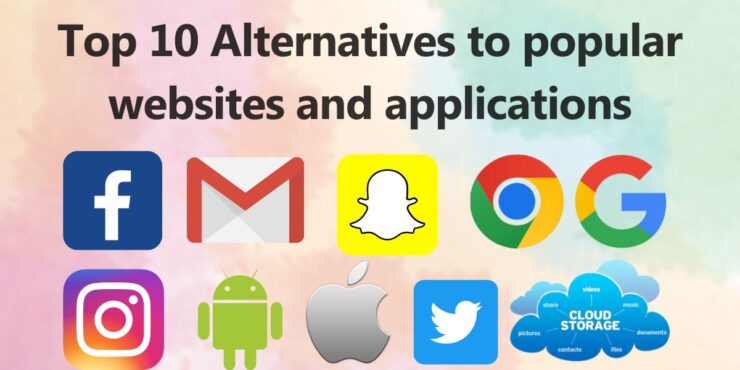There is perhaps a lot of 21st Century left to get through, but it seems pretty clear that one of our time ‘s defining questions is, do we have the right to privacy? From smartphones to CCTV, going off-the-grid is more complicated than ever, and many people are seriously wondering if we’re on track for some sort of sci-fi neo-fascist “cancel-culture” totalitarian state. Having said that, all of these services are outstanding, and some are even used by us. Below, you will find the best alternatives to popular websites such as Facebook, Twitter etc.
1. DuckDuckGo—Alternative of Google

Check out DuckDuckGo
There are many problems with Google’s search engine market supremacy, such as giving other Google products special privileges however, one of the main complaints people have is the data that they access. Google gathers and stores everything from what you search to where you stood when you searched it, and for how long. Although they have introduced some features to allow users to restrict the data they collect, the fact is that most people won’t.
If you’re worried that the queries you ‘re searching for today may resurface in years to come, or you’re just opposed to mass data collection, DuckDuckGo might be an attractive option. DuckDuckGo does not store any info, in contrast to Google. Aside from enabling you to query your gross or embarrassingly obvious questions without fear of potential embarrassment, DuckDuckGo also has a range of useful features that have been dropped from Google over the years, and its interface is so identical that the differences you’ll note are the lack of advertisements and the big duck in the corner.
2. Mastodon and Gab — Alternative of Twitter

Of the many issues concerning the Internet and how we should use it, one of the most influential is social media. Who should be permitted, at what age, what they can post, and how much moral obligation the platform bears for its end users are all issues that keep growing?
In response to the evident inability or unwillingness of big players to tackle these issues in any meaningful way, newer, small companies, such as Mastodon, have begun to emerge over the years. Mastodon ‘s basic principle is simple: while large sites such as Facebook and Twitter are trying to maintain control and consistency by consolidating and aligning their moderation, Mastodon’s key selling point is that everything is decentralized— effectively allowing users to create and supervise their sites.
But Mastodon was faced with a bit of an identity problem when another social media site, Gab, moved to its servers. While both are aimed at promoting free speech, Mastodon relies on decentralized moderation, while Gab functions on the concept of perhaps zero censorship, which has given it a large number of users with fairly “out-of-the-way” views.
Mastodon was vocal about his opposition to Gab, but he can’t realistically stop Gab from using the service. However, it could certainly be argued that Mastodon ‘s strategy to moderation is working very well indeed, as anyone who doesn’t like to interact with Gab or its users can block it entirely.
3. Signal— Alternative of WhatsApp

In terms of respect for the privacy of users, WhatsApp generally has a better reputation. They are particularly famous for their end-to-end encryption, which means that calls or messages can not be decrypted by a third party when going from one user to another. However, even with encrypted messages, many of us have doubts about some of the other data WhatsApp gathers and how it is used, notably since the platform was purchased by Facebook, whose privacy credibility is much less than stellar.
The signal is a messaging app developed using the same encryption technology used in WhatsApp and Facebook Messenger, but with extra features to boot, like screenshot blocking, self-destructing messages, a non-learning keyboard, and the ability to add a password to access your files. All Signal data is stored locally and encrypted, and is generally considered to be one of the most highly secured platforms on the market, which is why it has become so popular with journalists and protesters alike.
4. Wickr—Alternative of Snapchat

Often referred to as the “Snapchat Alternative,” Wickr is an instant messaging and video conferencing app available on Android and iOS, with full-featured desktop versions as well. You should be able to guess at least some of the basic features by now, such as end-to-end encryption and messages that expire after a certain time or self-destruct when read. But the self-described “most secure video conferencing and collaboration platform” has some additional safety measures in place, such as removing all metadata from any file you send, and several aspects to confirm the identity of a person you are talking to, including using the keys that they claim would take “thousands of years” to crack.
Originally built with high-profile business professionals in mind, Wickr has become incredibly popular with those who prefer more low-profile business. Drug dealers all over the world have begun using the app as an anonymous way to locate buyers, but many disgruntled Internet users say the app is so private that these “dealers” would only take your cash and run.
5. PixelFed—Alternative of Instagram

While Instagram does not gather as much comprehensive data like its parent company, Facebook, there are still factors to be suspicious of what it could do. Although they don’t give their users much of the same AI search that Google Photos does, nothing is preventing them from using the trillions of images uploaded to enhance their AI behind the scenes without ever adding new functionality to users. And even though we leave scanning and # 10YearChallenge conspiracies to one side, the fact that they can use your photos, royalty-free, forever, is real, so there’s a clear reason to pause before uploading.
In addition to this, Mastodon ‘s developers have created an open-source alternative called PixelFed. This has the same appeal as Mastodon, providing more or less the same functionality as Instagram, with good encryption, but without selling the data to advertisers. Like Mastodon, PixelFed is confederated and decentralized using instances, meaning that it works like a collection of mini-sites. The benefit of this is that there is no HQ frantically struggling to make a buck, but the limitation is that an instance can be badly handled or vanish depending on who runs it.
6. Librem—Alternative of Android and iPhone

Of course, one thing you need to consider when it comes to privacy is that there is no point in taking all these precautions and using different tools if the device you are using is still quite willing to throw on all the details you see. There is no sense in using DuckDuckGo on your Pixel phone.
When you ask someone which phone they ‘d suggest to anyone worried about privacy and protection, there’s a fair chance that they’ll say “Librem.” Built with the sole intention of being the most secure phone on the market, the Linux-based phone gives all the encryption you ‘d demand without extracting your data, as well as some extra features such as kill switches.
It must be noted, however, that there is one major drawback: at $1,999 (for the “Made In The USA” edition), the recently released Librem 5 has received very tepid reviews, especially concerning its battery life. Although most reviewers support its approach to privacy and security, they add that it still requires work as a real phone. That being said, Librem could only work well for the likes of journalists, who should only use it if needed, and most reviews end on a positive note, suggesting that future launches will shake the market. It can also be noted that Librem ‘s manufacturers are already manufacturing highly secure laptops (Librem 13) and desktop computers (Librem 15).
7. IDrive—Alternative of Cloud Storage

For AI and machine learning going as quickly as they are, those who are well-versed in privacy have become highly aware of what this entails. Uploading a picture for data backup is not the same in 2020 as it was in 2015. For example, you might already know that Google combs your images for metadata, and categories them by date and location. You may also realize that they would even scan photos, make it possible to search for products like “dog” and make it possible for them to tailor adverts to you, like trying to promote dog food.
For a more private option, something like IDrive is going to do almost everything you need, but without browsing through your family pictures while you’re not around. It offers all the features you ‘d expect in terms of backup, archiving, encryption, and protection, but without your data being exchanged. While Google gives you 15 GB of free storage, IDrive only provides 5 GB before paying around $50 a year for 5 TB. Still, it is a good option for people who are more worried about privacy than price.
8. ProtonMail—Alternative of Gmail

ProtonMail is a privacy-focused email service offering both free-to-use and membership-based services. Overall, it functions like almost any other email service but uses end-to-end encryption for messages sent between two ProtonMail users, and stores all the other emails using zero-access encryption, ensuring that no one else can access your messages. For additional protection, the images are not loaded automatically, and a pop-up asks if you’re sure you want to open a link before you do so. Also, ProtonMail requires you to create a password for messages sent to non-ProtonMail users, as well as an expiry date for your messages.
Based in Switzerland, which is known for its privacy rules, ProtonMail is widely praised by those who respect security. It should be noted that free users are restricted to 150 emails per day, and even the cheapest subscription package is restricted to 1,000. But with many packages to choose from and the ability to build custom domains, ProtonMail is well designed for both personal and professional email needs.
9. Minds—Alternative of Facebook

Ever since their unwilling merger, both Gab and Mastodon had been modelled on Twitter, allowing up to 500 characters per post. But if microblogging isn’t your thing, and you’re searching for a more Facebook-like experience, then Minds might be the option for you. Upon signing into Minds, you’ll see that’s a pretty blatant visual copy of Facebook. What separates it most from social media is its dedication to privacy and data security, in addition to the promotion of free expression. Another crucial difference is that, at least theoretically, Mind allows people to make money by using their platform.
In a nutshell, users are given tokens for spending time on the site or posting content that others are responding to. Such tokens can be used to boost posts, while users can also cover all boosted posts. The ultimate aim is to enable these tokens to be traded for cryptocurrency and converted into real money.
No AI is used to identify content that is not enabled, with the platform leaning on a small team of human censors. Unlike other alternative social media platforms, Minds has attracted a range of far-right users, but the site tends to be focused on eliminating racist content, thus allowing legitimate political differences to remain.
10. Epic Privacy Browser—Alternative of Safari, Chrome, Firefox

It should be evident that Google’s influence is not confined to its dominant search engine. When it introduced its browser in 2008, Google Chrome rapidly became a common choice among Internet users, and although it never surpassed the legendary 96% that Internet Explorer once possessed in ancient days, Chrome’s market share now stands at 49.3%—18% ahead of its next-largest rival, Safari. By moving people to a browser rather than just a search engine, Google has been able to gather much more information about its users and can use it to paint a much more accurate image of each customer.
Interestingly, all of these browsers are designed using Chromium, the Google open-source software project. However, this simply provides the basic code that can be modified to build new browsers, such as Epic. Epic does what you’d expect, blocks all sorts of advertisements, monitors, forwards, and IP data transfers, and runs in a permanent “Incognito Mode” mode, delete your history, cookies, and so on every time it is closed. Yet there’s a trade-off with this improved anonymity because almost no Chrome extensions can work in the Epic browser.
Check out some useless facts that are really interesting :

Hi, I’m Jodie! I’m a spain-Moroccan writer with a passion for imagination, adventures, magic and stories with heart.
Please don’t hesitate to contact me for any questions, suggestions, comments or feedback.

















Add comment